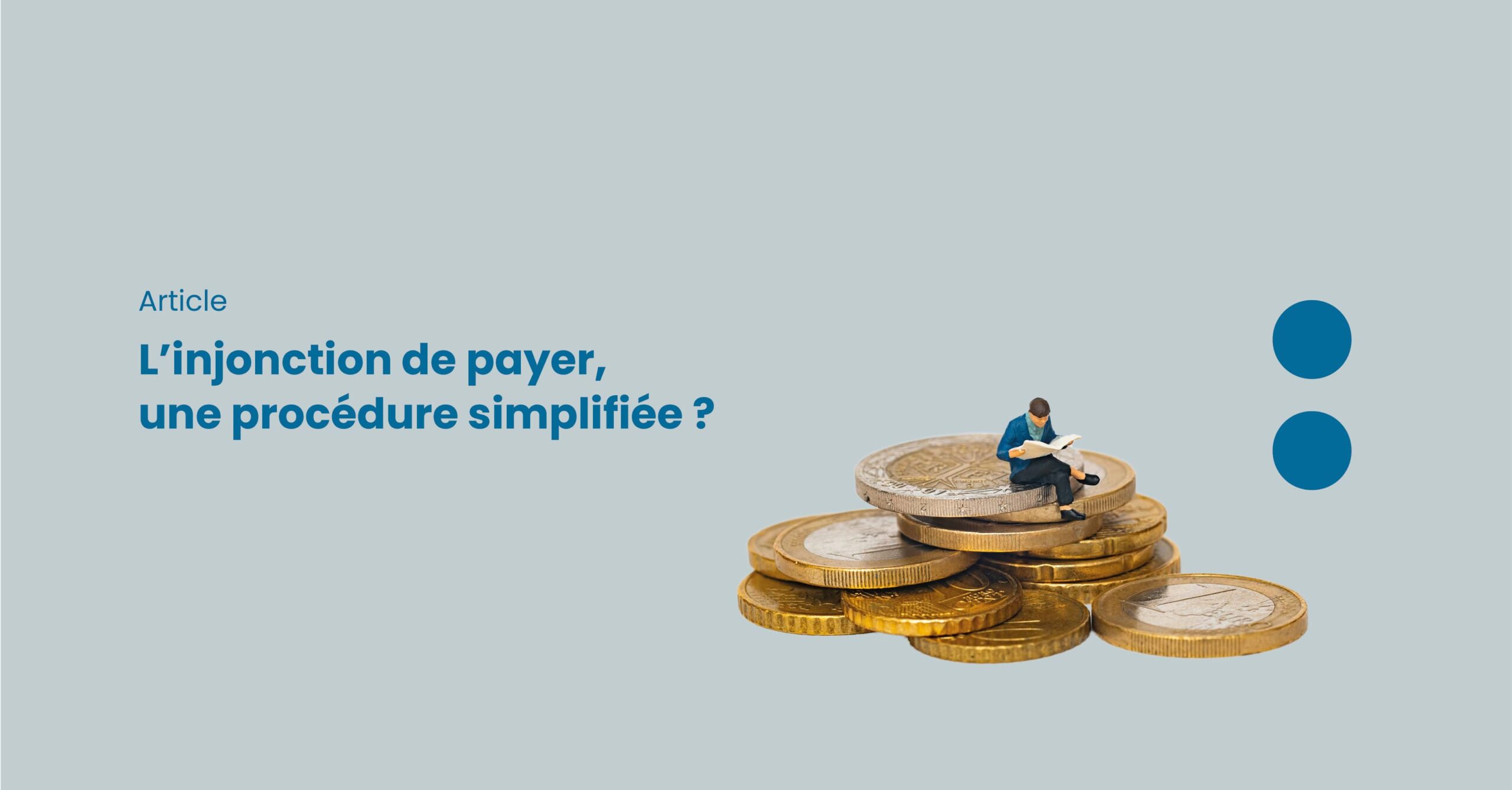
The order to pay
The order for payment is a simplified, rapid and non-adversarial procedure by which a creditor requests the recovery of a debt arising from a contract, a bill of exchange, a promissory note or the acceptance of an assignment of professional debt.
If the President of the court grants the request, he will issue an order for payment to the creditor. The debtor will then have a period of one month from the service of the order to contest it by filing an opposition with the President of the Court who issued it.
Towards a simplification of the injunction
Decree No. 2021-1322 of October 11, 2021 , which will enter into force on March 1, 2022 at the latest, is intended to simplify and speed up this procedure, in particular with regard to the procedure relating to the affixing of the form executory on the ordinance, formula essential to its execution.
Currently, the creditor can request the affixing of the writ of execution only at the end of the opposition period of one month open to the debtor to contest the order.
This means that the creditor must serve, once, the order to the debtor to start the opposition period and a second time after the order is coated with the enforceable formula. The reform provides that the enforcement order must be affixed immediately to the order issued by the President of the Court. Therefore, only one service of the order is necessary.
An efficient procedure
If this modification constitutes a step forward, the creditors will however have to wait for the expiry of the opposition period, or if necessary the outcome of the opposition procedure, to enforce the said order.
The fact remains that the order for payment procedure is quick and should be preferred to that in summary proceedings or on the merits, which are longer and more expensive.
Arst Avocats is at your disposal to assist you in the recovery of your debts.

Fanny Hurreau
author
associate lawyer
Repetition of old-age benefits obtained by fraud
Court of Cassation, Plenary Assembly, May 17...
Biennial prescription: the Court of Cassation finally sets limits in favor of insurers
The obligation to inform insurers about the causes of interruption of the two-year prescription does not require mentioning the entire article 2243 of the Civil Code according to which the interruption does not take place when the claimant give up, leave...
Interview with Romain Picard, young partner of the firm Arst Avocats specialized in Corporate / M&A
Today we welcome Romain Picard, a young partner from Arst Avocats, who tells us about the reasons that led him to join the firm and talks to us about the projects that drive him with regard to the development of the practice of Corporate / M&A in this office...
Repetition of old-age benefits obtained by fraud
Court of Cassation, Plenary Assembly, May 17...
Biennial prescription: the Court of Cassation finally sets limits in favor of insurers
The obligation to inform insurers about the causes of interruption of the two-year prescription does not require mentioning the entire article 2243 of the Civil Code according to which the interruption does not take place when the claimant give up, leave...
Interview with Romain Picard, young partner of the firm Arst Avocats specialized in Corporate / M&A
Today we welcome Romain Picard, a young partner from Arst Avocats, who tells us about the reasons that led him to join the firm and talks to us about the projects that drive him with regard to the development of the practice of Corporate / M&A in this office...